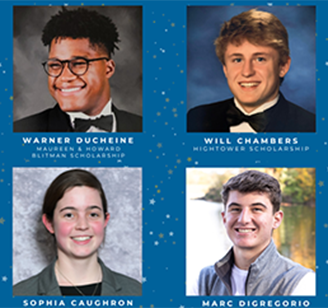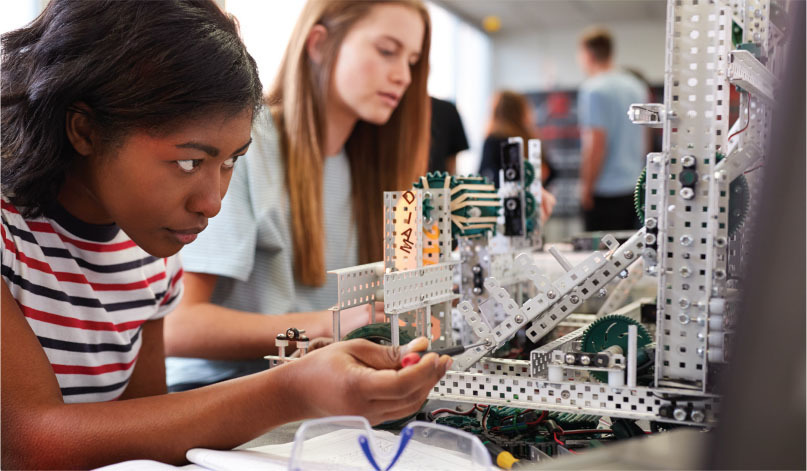July/August 2017
Communities: Education
Institutions Watching and Waiting on International Enrollments
 Colleges and universities are keeping a cautious eye on how proposed changes to US immigration policy and political rhetoric are affecting international student population numbers. While early application data caused apprehension, some indications point to stabilizing enrollment figures.
Colleges and universities are keeping a cautious eye on how proposed changes to US immigration policy and political rhetoric are affecting international student population numbers. While early application data caused apprehension, some indications point to stabilizing enrollment figures.
According to a survey conducted in February by a coalition of higher education organizations, almost 40% of US institutions saw a decline in international applications for fall 2017, in addition to reporting “a great deal of concern” from international students and families.
The survey, conducted by the American Association of Collegiate Registrars and Admissions Officers (AACRAO) and partners, found the most concern coming from the Middle East, India, Asia—excluding China and India—and Latin America. According to the report, “the locations from where the highest levels of concern were reported correspond highly to the regions targeted” in recent political rhetoric.
Institutions reported students’ and families’ top concerns: perception of a rise in student visa denials, perception that the US climate is now less welcoming to people from other countries, worries that visa benefits and restrictions could change, and concerns that President Trump’s executive order could expand to more countries.
Thirty-five percent of countries reported an increase in international applications, and 27% reported no changes. However, according to AACRAO Deputy Director Melanie Gottlieb, “no change in application numbers is absolutely news” because international applicant numbers had been growing consistently for almost a decade.
At two institutions that had seen initial application drops, enrollment numbers are now aligning with previous years.
As of the end of February, international applications at the Colorado School of Mines were 19% lower relative to the same time last year. But by early June, enrollment figures were very similar to 2016, explains engineering dean Kevin Moore, P.E.
What changed? “I wish I could say we knew,” he says. But he highlights other factors, such as the oil and gas downturn and potential cuts to federal funding for international students, that must also be considered.
Dartmouth College also previously saw a large decline. Engineering dean Joseph Helble had reported a 30% decrease in international applications for the school’s master’s program in engineering management. However, the program’s current international yield (the percentage of students who decide to enroll after being admitted) is now slightly above last year’s numbers.
Helble can only speculate as to causes; he guesses that international students who were uncertain about climate or concerned about postgraduation work visas didn’t apply, and the rest were already committed.
Dartmouth had also increased its outreach to international students—not specifically to address climate but “to make sure they knew we were offering them admission because they were extremely talented students and we very much wanted them to come.” In addition, the school continued its program connecting international applicants with currently enrolled students from their home countries.
Helble serves as Public Policy Committee chair for the American Society for Engineering Education’s Engineering Deans Council, and has been collecting data from fellow deans. So far it seems that yield data for international graduate students is averaging about the same as last year, but he says he won’t know for certain until late summer.
A follow-up survey from AACRAO and its coalition will examine data on students accepting admissions offers and whether recently approved additional visa vetting procedures for some international applicants will impact student numbers. “Just because students accepted the admission offer doesn’t mean they will get a visa and come to the US,” says Gottlieb.
The deputy director notes that STEM programs are among the most in demand by international students coming to the US. “Our reputation as being open and competitive in the international environment really gives our country, our institutions, an edge to recruit the best and brightest students in various disciplines,” she says.
As developments continue in US immigration policy, Moore and Helble also emphasize the need for international students. “I’m concerned that if the world’s best and brightest engineers and scientists choose not to come here to pursue graduate education, advance scientific knowledge, and develop useful technologies,” Helble says, “the US will suffer.”
Both he and Moore also point to the benefits for US-born engineers to interact with multinational students and develop a global viewpoint that will assist them in their careers.
In addition, says Helble, bringing together US-born and international students with different perspectives to work on engineering challenges results in a “much richer and technologically robust solution.”
Go to www.aacrao.org to find the full report.
Societies Stress ‘Vital Role’ of Immigration in Technological Innovation
US engineering organizations released a joint statement in February noting that, while the US immigration system must protect citizens and national security interests, innovation is “easier in an environment that encourages the free flow of people and ideas.”
The statement highlights the ways the “talents, dedication, and hard work” of people from countries around the world benefit the growth and prosperity of the US, as well as the competitive advantage provided by attracting students, collaborators, researchers, and professionals.
The signatories “encourage the Administration and Congress to work with all interested parties to ensure that our country’s visa and immigration systems maintain the flow of individuals and ideas upon which our country’s prosperity and progress depend.”
The organizations joining the statement include the American Association of Engineering Societies, engineering accrediting body ABET, the American Institute of Aeronautics and Astronautics, the American Institute of Chemical Engineers, the American Society of Agricultural and Biological Engineers, the American Society of Civil Engineers, the American Society for Engineering Education, the American Society of Mechanical Engineers, IEEE-USA, and SAE International.
Read the full statement: www.abet.org/blog/news/message-from-americas-engineering-associations.
Immigration Concerns
AACRAO and partners conducted a survey of professionals involved in recruiting international students to the US. According to the report, the survey was intended to capture a snapshot of applicant numbers, since other studies are engaged in more in-depth research on international student enrollment trends. The survey collected almost 300 responses.
Percentage of Institutions Reporting Concern by Region or Country

Top Concerns by Region
Open-ended responses about concerns were coded by keyword and then grouped thematically. Most regions had similar concerns.
Immigration: includes concerns about obtaining and maintaining a visa, traveling while on a visa, changes in visa requirements and/or benefits, and general fear about instability or bias of the process;
Unwelcome: includes concerns about xenophobia, anti-Muslim sentiment, discrimination, and the general climate in the US, especially toward international students;
Political: includes concerns about instability of US leadership and/or the administration;
Economic: mainly centered on economic issues in the home country; and
Employment: concerns about practical training, the H-1B process, and fears that employment benefits of student visas would cease.
The theme of risk was specific to China, with concerns that included fear, safety, and general unspecified worry.
Top thematic concerns expressed by prospective international students and/or their families, as reported by recruitment professionals in each region:

SOURCE: TRENDING TOPICS SURVEY: INTERNATIONAL APPLICANTS FOR FALL 2017—INSTITUTIONAL & APPLICANT PERCEPTIONS, APRIL 2017. RELEASED BY THE AMERICAN ASSOCIATION OF COLLEGIATE REGISTRARS AND ADMISSIONS OFFICERS IN PARTNERSHIP WITH THE INSTITUTE OF INTERNATIONAL EDUCATION, THE INTERNATIONAL ASSOCIATION FOR COLLEGE ADMISSION COUNSELING, THE NATIONAL ASSOCIATION FOR COLLEGE ADMISSION COUNSELING, AND NAFSA: ASSOCIATION OF INTERNATIONAL EDUCATORS.


 Volunteering at NSPE is a great opportunity to grow your professional network and connect with other leaders in the field.
Volunteering at NSPE is a great opportunity to grow your professional network and connect with other leaders in the field. The National Society of Professional Engineers (NSPE) encourages you to explore the resources to cast your vote on election day:
The National Society of Professional Engineers (NSPE) encourages you to explore the resources to cast your vote on election day:



